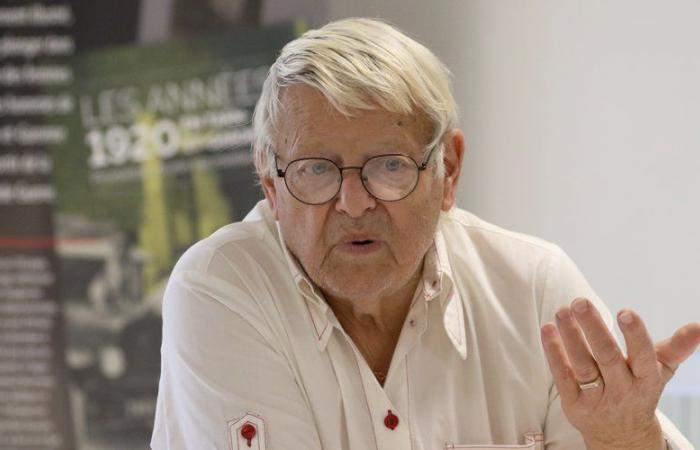the essential
SERIES. Tarn-et-Garonne and the Olympic Games (5/12). Boxing champion in Austria in the 1930s, Rudolph Lepkowicz took refuge in Montauban after refusing to participate in the Berlin Games organized by a certain Adolph Hitler.
No title, no medal, no moment of glory at the 1936 Summer Games for Rudolph Lepkowicz. The Austrian boxing champion qualified for Berlin refuses to participate in these Olympics, like many Jewish athletes who decide to boycott these Olympics. The choice of Berlin to organize the 1936 Olympic Games symbolized Germany’s return to the international scene, after its defeat in the First World War. But between the date the Games were awarded in 1931 and their organization five years later, the German far right had moved to the forefront of the country’s political life. These Olympics were therefore a perfect means of propaganda for Adolf Hitler who used the global event as a showcase for his ideologies.
“When you are a refugee, you don’t talk about the past.”
“The objective of the Berlin Games was to reflect the image of Nazi Germany throughout the world and my father, very politically involved alongside the Austrian socialists, refused to participate,” explains his son Michel Lepkowicz. But at home, he never spoke about this episode until his death in 2000. Only a small red and white pennant displayed in the living room, which he looked at from time to time, led me to believe that he “We never forgot this time. When we are refugees, we don’t talk about the past and the boxes of memories with photos and medals have been lost.”
A refugee in France, Rudolph Lepkowicz landed in Montauban in July 1941 after having stayed in Paris for three years and made a detour with his brother to Switzerland. During the day, he worked in Montauban as a plumber and at nightfall, he joined Montech by bike along the canal to hide from the roundups. The Austrian boxing champion obtained French nationality in 1950 and never left Tarn-et-Garonne.
“My father wasn’t a big talker and was often very strict with my brother and me. I noticed that the spankings he gave me with his left hand were much harder than the ones he gave me with his right hand. Needless to say, I always knew where to stand when I passed him,” recalls Michel. “He loved sports so much that he followed the boxers at the Montauban club a bit, then he coached a football team at La Vaillante. I even had him as a coach and there too, he wasn’t easy… My brother was more athletic than me and had more of his support. He accompanied him to his wrestling competitions. But for me, it wasn’t easy to open the box of memories with him, to talk about his title as Austrian boxing champion in the 1930s, to discuss the Olympics or even to mention his escape to France.”
Died in Montauban at the age of 86, Rudolph Lepkowicz takes with him his history, his memories, his fight against Nazism which made him give up participating in the Olympic Games.
Documents in the Departmental Archives
When it came to remembering and tracing his father’s sporting career, Michel Lepkowicz had no photos of this former featherweight champion of Autrice in the 1930s. Jérôme Cras, Pascal Caïla and the departmental archives team were able to get their hands on numerous documents testifying to the arrival of Rudolph Lepkowicz in Montauban, including notes from the general intelligence service at the time and identity papers. A press article published in the 1950s evokes the brilliant past of this man, known for having refused his Olympic selection. Documents that even his son did not know.






